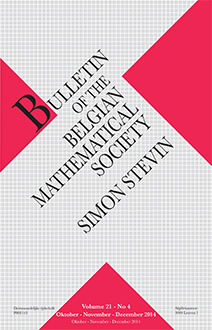Abstract
For irrational $\beta>1$ we consider the set ${\rm Fin}(\beta)$ ofreal numbers for which $|x|$ has a finite number of non-zerodigits in its expansion in base $\beta$. In particular, weconsider the set of $\beta$-integers, i.e. numbers whose$\beta$-expansion is of the form $\sum_{i=0}^nx_i\beta^i$,$n\geq0$. We discuss some necessary and some sufficient conditionsfor ${\rm Fin(\beta)}$ to be a ring. We also describe methods toestimate the number of fractional digits that appear by additionor multiplication of $\beta$-integers. We apply these methodsamong others to the real solution $\beta$ of $x^3=x^2+x+1$, theso-called Tribonacci number. In this case we show thatmultiplication of arbitrary $\beta$-integers has a fractional partof length at most 5. We show an example of a $\beta$-integer $x$such that $x\cdot x$ has the fractional part of length $4$. Bythat we improve the bound provided by Messaoudi from value 9 to 5; in the same time we refute the conjecture ofArnoux that 3 is the maximal number of fractional digits appearingin Tribonacci multiplication.
Citation
P. Ambrož. C. Frougny. Z. Masáková. E. Pelantová. "Arithmetics on number systems with irrational bases." Bull. Belg. Math. Soc. Simon Stevin 10 (5) 641 - 659, December 2003. https://doi.org/10.36045/bbms/1074791323
Information





